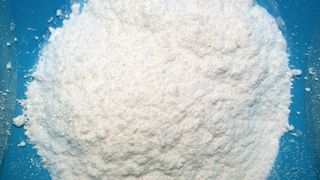Hunter-killer antibodies chasing down cancer
Plus, volcano energy, syrup cocaine and religion
Could volcanoes provide us with limitless clean energy? -- When you think of volcanoes you could be forgiven for picturing disaster movies like Dante's Peak or the ancient Roman city of Pompeii, which was unceremoniously swallowed by the pyroclastic flow of Mount Vesuvius. But volcanoes represent a tremendous amount of thermal energy that could be harnessed to power our homes and cities.

Now engineers in Oregon are using 'enhanced geothermal engineering' (EGS) to see whether they can use water, pumped deep underground near Newberry Volcano in Deschutes National Forest, to siphon off some of the immense heat to generate electricity. The trouble with EGS is that it works by forcing new fissures, fractures, cracks and tunnels into the rock with water, potentially resulting in earthquakes.
The superheated water is then pumped up through turbines and recycled back into the ground, generating a large amount of renewable and clean energy in the process. It's early days in the project, but we could start seeing the results of the pioneering work in the next few years. One to keep an eye on then, because if all goes well, EGS projects of this scale could start springing up around the world adding to our renewable energy armoury. [Popular Science]
Cameras could be the new microphones -- Lip-reading is all very well, but you can't actually recreate a person's voice by watching their mouth's movements. Researchers from Japan now reckon that they can recreate a person's voice simply from high-speed camera footage of a neck.

Essentially, the new technique records vibration data, just like a microphone or vibrometer does. The camera captures the motion 10,000s of times a second, and reconstructs the images into vibration data, which is then used to recreate the sound made. So far the scientists have been able to record and recreate a single word, but a whole sentence is on the agenda for before the year is out. It's not going to replace microphones any time soon, then, but it could make for much more accurate eavesdropping for spies in the near future. [ASoA]
High-fructose corn syrup is essentially like cocaine -- It seems there really is such a thing as food addiction on a neurobiological and behavioural level that matches the addictive effects of drugs like cocaine. Research into causes of the obesity epidemic we're currently being faced with has thrown up some curious results. It seems foods that contain unnaturally high concentrations of sugar, fats and "taste enhancers" create the same kind of neurochemical changes in the brains of rats that highly addictive drugs like cocaine do.
The data presented at the annual meeting of the Canadian Association for Neuroscience clearly demonstrates convincing neurobiological and behavioural evidence pointing to the possibility of a real addiction to food.
Get daily insight, inspiration and deals in your inbox
Get the hottest deals available in your inbox plus news, reviews, opinion, analysis and more from the TechRadar team.

While the same effects haven't yet been proven in humans, the addictiveness of enhanced or processed foods would certainly go some way to explaining the increasing problem of obesity. It's possible that, by understanding the neurobiological processes involved in this kind of food addiction, we could develop drugs to block it, and therefore help people wean off unhealthy foods. [EurekAlert]
Opportunity finds evidence of drinkable water on Mars -- Following on from its younger, bigger brother Curiosity's water find, NASA's Opportunity Mars rover has found evidence of past water flow on the red planet. By analysing a rock, the rover discovered clay minerals that indicate water with a neutral pH, like that which flows out of your tap, once encased the rock in the first billion years of its existence.
The interesting thing is that this balanced water, which is neither alkaline nor acidic, is much more conducive to the formation of life than the kinds of acidic or alkaline water you'd associate with desert conditions. It's amazing to think that Opportunity, which was only built to last 90 Martian days, is about to hit its 3400th day or 10 years on the fourth rock from the Sun, and is still making remarkable discoveries. [NASA]
